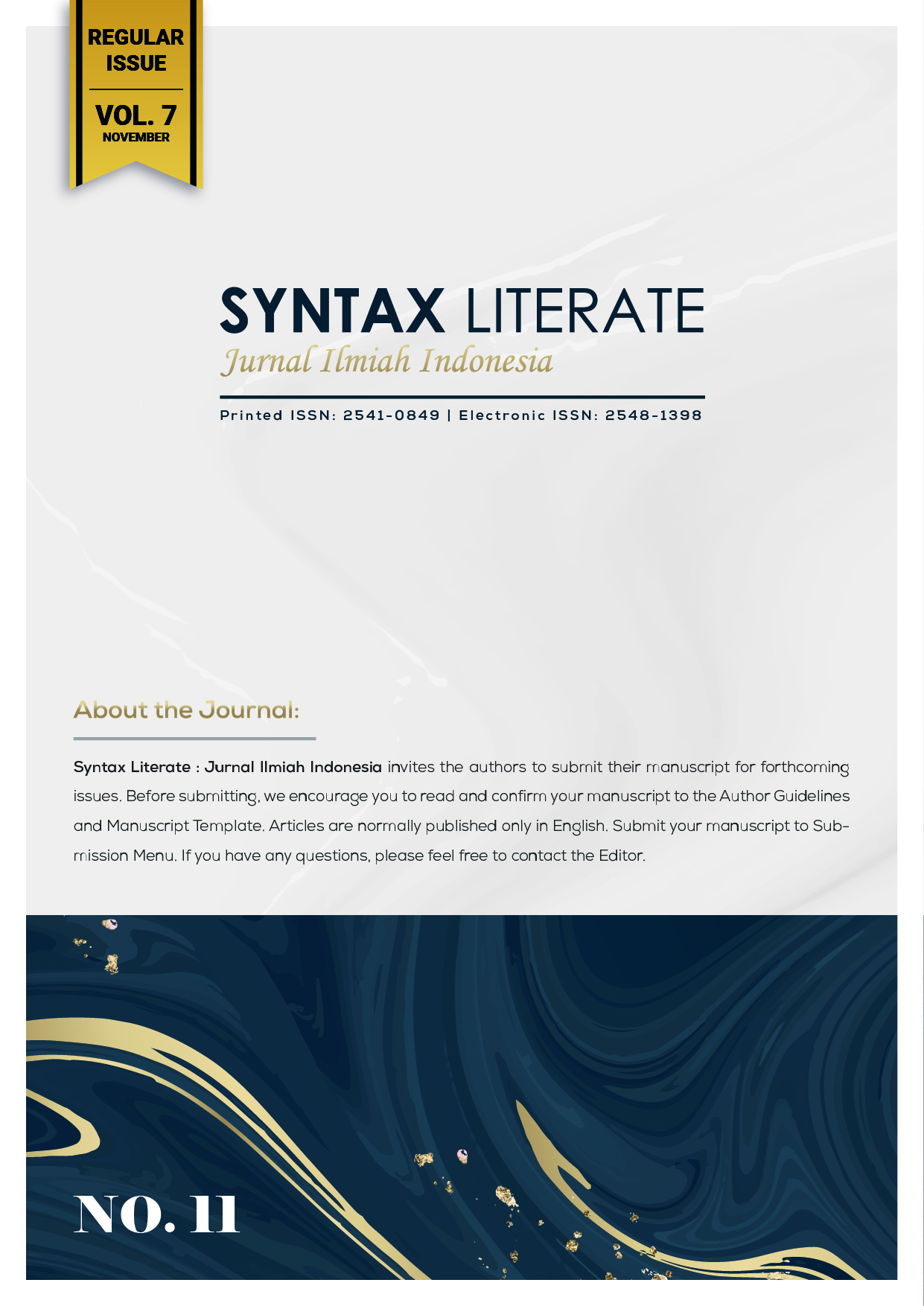Asesmen Pengembangan Karir pada Karyawan di Industri Pembangkitan Listik PT. X
Abstract
Asesmen pengembangan karir dilakukan sebagai salah satu praktik pengelolaan karir yang ditujukan untuk mendapatkan gambaran Studi ini bertujuan untuk melihat kesesuaian antara kompetensi, minat, potensi, dan kepribadian subjek dalam posisi yang akan dipromosikan. Subjek pada penelitian ini merupakan 1 orang yang merupakan karyawan PT. X. Subjek sedang berada pada masa asesmen yang merupakan suatu masa di mana dia akan dipromosikan ke dalam posisi supervisor. Penelitian ini menggunakan metode tes psikologi dan metode wawancara. Data dianalisis menggunakan analisis deskriptif dan kualitatif. Hasil penelitian menunjukan bahwa subjek direkomendasikan ke dalam posisi Supervisor SDM karena telah memenuhi persyaratan kompetensi jabatan dan minat yang dibutuhkan untuk dipromosikan. Hasil penelitian juga menunjukan bahwa subjek tidak direkomendasikan ke dalam posisi Supervisor CSR & Umum karena terdapat kompetensi inti yang belum sesuai dengan persyaratan promosi.
Downloads
References
Baruch, Y. and Vardi, Y. (2016), “A fresh look at the dark side of contemporary careers: toward a realistic discourseâ€, British Journal of Management, Vol. 27 No. 2, pp. 355-372.
Bernardin, H. Jhon., Russel, Joyce E. A. (2013). Human Resouces: An Experimental Approach. Singapore: Mc. Graw – Hill book.co.
Carless, S. A. (2005). Person–Job Fit Versus Person–Organization Fit as Predictors of Organizational Attraction and Job Acceptance Intentions: A Longitudinal Study. Journal of Occupational and Organizational Psychology, 78, 411–429. https://doi.org/10.1348/096317905X25995
Cummings, T. G., & Worley, C. G. (2015). Organization Development & Change. Cengage Learning.
Dias, M. de O., & Aylmer, R. (2019). Behavioral Event Interview: Sound Method for Indepth Interviews. Oman Chapter of Arabian Journal of Business and Management Review, 8(1), 1–6. https://doi.org/10.12816/0052846
Gardner, L. Jr, Barrett, T.G. and Pearson, L.C. (2014), “African American administrators at PWIs: enablers of and barriers to career successâ€, Journal of Diversity in Higher Education, Vol. 7 No. 4, pp. 235-251.
Hancock, M.G. and Hums, M.A. (2016), “A ‘leaky pipeline’? Factors affecting the career development of senior-level female administrators in NCAA Division I athletic departmentsâ€, Sport Management
Holland, J. L. (1997). Making vocational choices: A theory of vocational personalities and work environments (3rded). Luts, Florida: PAR, Inc.Review, Vol. 19 No. 2, pp. 198-210.
Nurochim, A. D., Wardani, A. A., & Putri, A. R. (2022). Pembentukan dan Perkembangan Alat Tes DISC: Sebuah Literature Review. Jural Flourishing, 2(1), 59–63. https://doi.org/10.17977/10.17977/um070v2i12022p59-63
Peng, Y., & Mao, C. (2015). The Impact of Person – Job Fit on Job Satisfaction: The Mediator Role of Self Efficacy. Springer Science and Business Media, 805–813. https://doi.org/10.1007/s11205-014-0659-x
Prien, E., Schippmann, J., & Prien, K. (2003). Individual Assessment as Practiced in Industry and Consulting. Lawrence Erlbaum Associates.
Spencer, L.M., & Spencer, S.M. (1993). Competence at Work: Models for Superior performance. New York: Job Wiley & Sons, Inc.
Suryani, Y. E. (2018). Aplikasi Rasch Model dalam Mengevaluasi Intelligenz Structure Test (IST). Psikohumaiora: Jurnal Penelitian Psikologi, 3(1), 73–100. https://doi.org/http://dx.doi.org/10.21580/pjpp.v3i1.2052
Werner, J. M. & De Simone, R. (2006). Human Resource Development. USA: Thomson.
Wilbers, L. (2015). An Investigation into the First-Order Factor Structure Of The Personality And Preference Inventory - Normative (PAPI-N) On A Relatively Large South African Sample. University of Stellenbosch.
Wilson, J. P. (2004). Human Resources Development 2nd Edition: Learning & Training for Individuals & Organization. In Kogan Page Limited.
Whiston, S.C. & Rahardja D. (2005). Qualitative career Assessment: An Overview and Analysis. Journcal of Career Asessment, 13. (9th Edition). Pearson Education, Inc: United States of America.
Whitchurch, C. (2007), “The changing roles and identities of professional managers in UK higher educationâ€, Perspectives: Policy and Practice in Higher Education, Vol. 11 No. 2, pp. 53-60.
Whitchurch, C. (2008), “Shifting identities and blurring boundaries: the emergence of third space professionals in UK higher educationâ€, Higher Education Quarterly, Vol. 62 No. 4,pp. 377-396.
Whitchurch, C. (2009a), “Progressing professional careers in UK higher educationâ€, Perspectives: Policy and Practice in Higher Education, Vol. 13 No. 1, pp. 3-10.
Copyright (c) 2023 Hendrikus Anung Anindito

This work is licensed under a Creative Commons Attribution-ShareAlike 4.0 International License.











